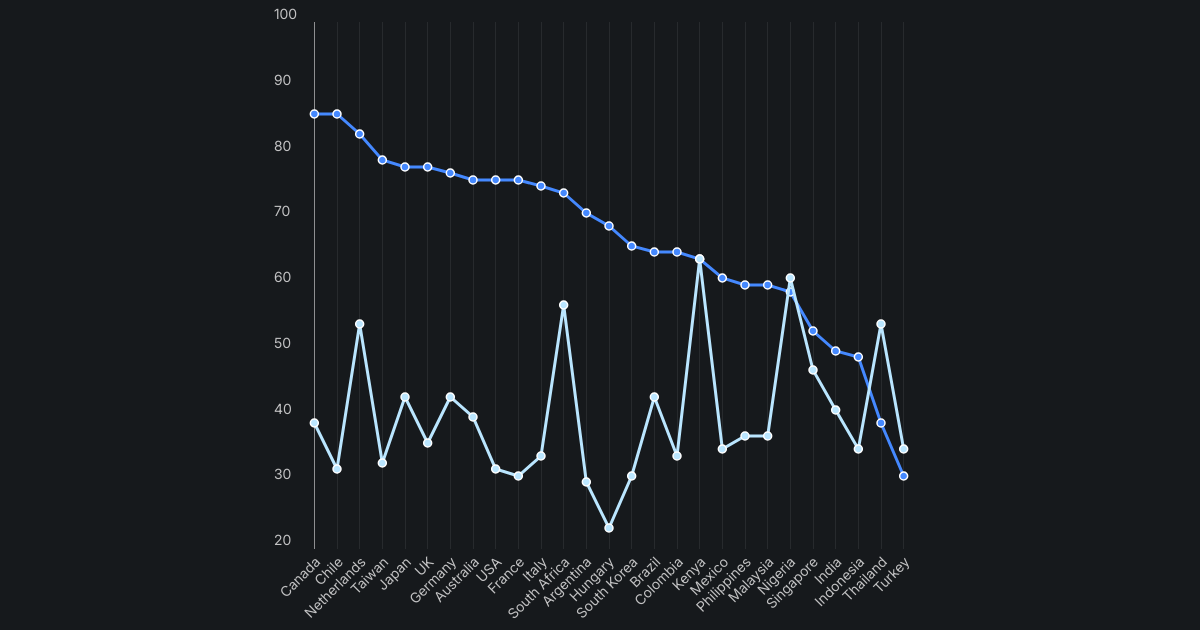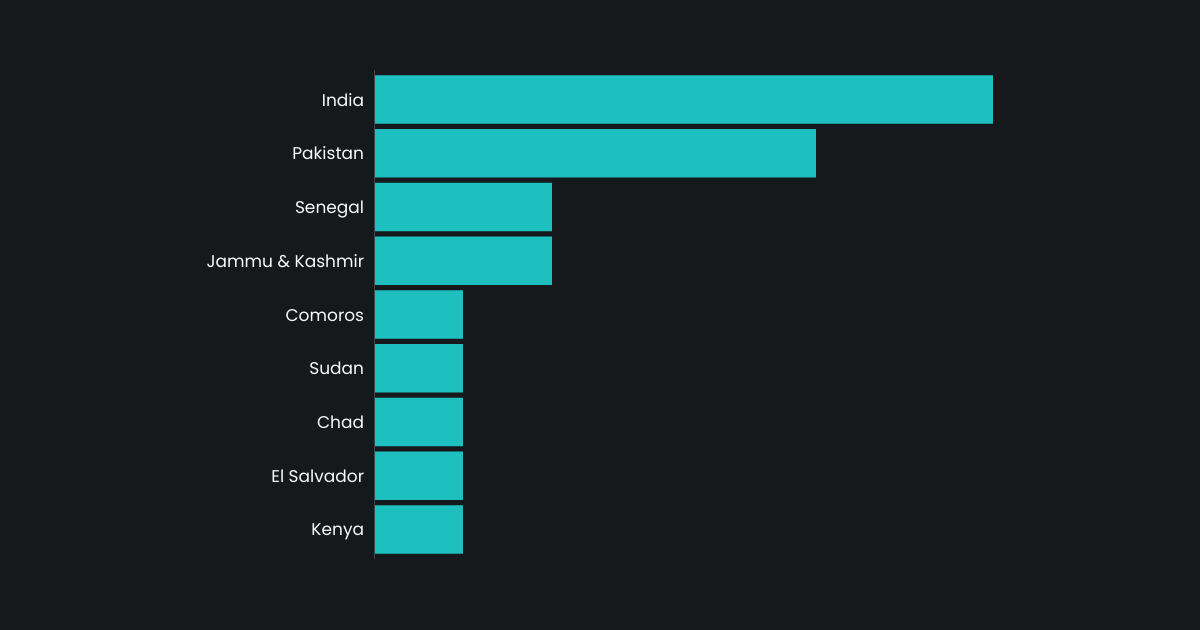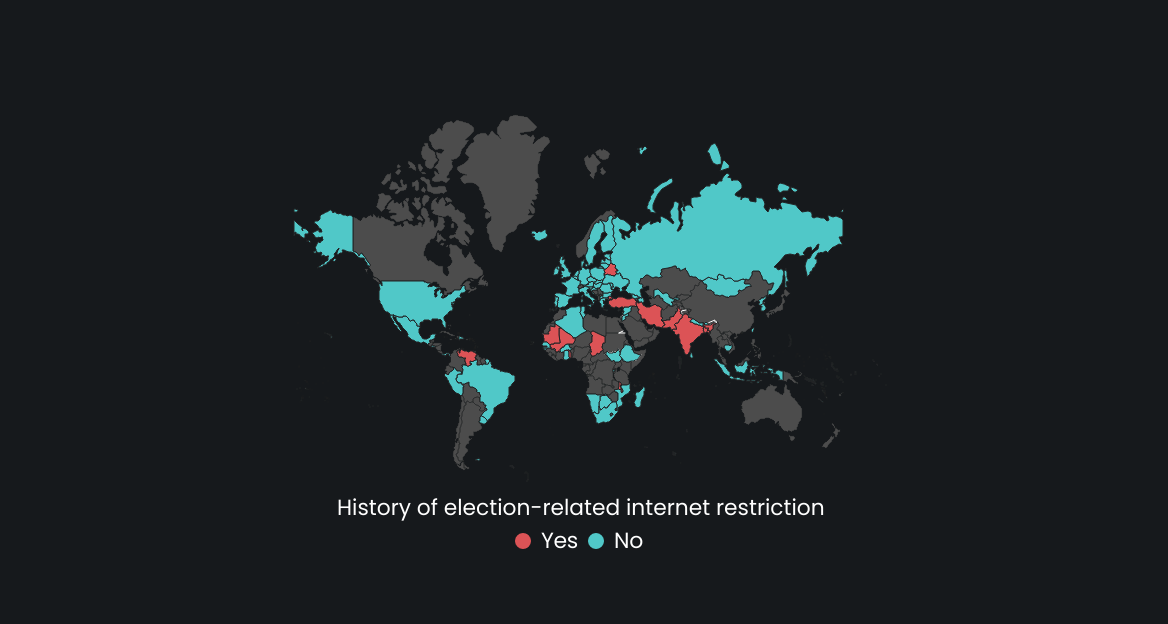digital democracy|digital freedom
VPN restrictions around the world
Governments can outwardly restrict VPN (Virtual Private Network) usage — usually as a measure to curb the spread of free media and information. This chart provides insights into where VPN usage is or has been restricted in the past.
Key insights
- Out of the 195 countries and territories examined, 15 (or 7.7%) have imposed restrictions on VPN usage, either now or in the past, including Egypt, Uganda, Tanzania, China, India, Iran, Iraq, Myanmar, Oman, Pakistan, Turkey, Turkmenistan, the UAE, Belarus, and Russia.
- Out of all countries mentioned above, Uganda is the only one to no longer experience VPN usage restrictions.
- These restrictions have affected 3.7 billion people in total — nearly half (or 47.3%) of the global population.
- Of the 14 countries currently restricting VPN usage, 10 (or 71.4%) are in Asia, affecting more than two-thirds (or 71.6%) of the Asian population.
Methodology and sources
Our researchers looked for evidence of VPN restrictions through official and media publications. Depending on the information found, each country was classed according to one of four categories: “No evidence,” “Restricted in the past,” “Currently restricted,” and “Possible restrictions.” The latter category comprises countries with sufficient evidence to infer VPN restrictions but not enough to confirm them. An example would be North Korea, where the internet is heavily restricted, but no official statement on VPN restrictions could be found.
For the complete research material behind this study, visit here.

